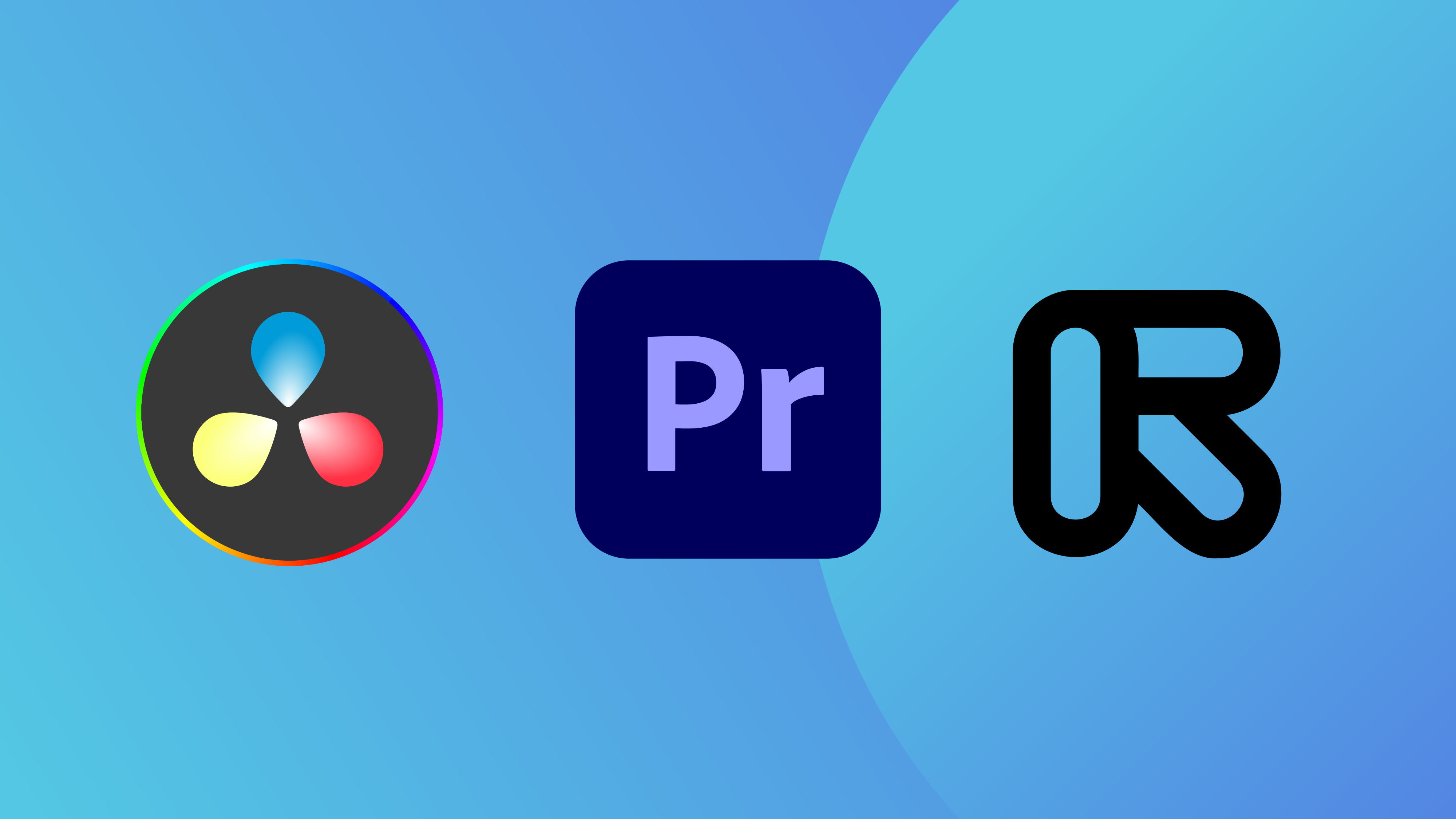
The best AI video editors are advancing at an incredible speed. It wasn't long ago that AI video was an unwatchable glitchy mess, but the array of AI video generators and AI video editing software is proliferating.
AI video editing tools take many forms. There's standard professional video editing software that's starting to incorporate AI-powered tools to speed up workflows. There are also AI video generators, which allow you to generate new video from scratch using text prompts, and there are specific niche AI video editing tools for things like creating talking heads videos. In the guide below we'll pick out the best options we've tested so far in each category.
Note that some of the most renowned (and controversial) AI video generators, such as OpenAI's Sora, are not yet available for public use. In this guide, we're focusing on software that is generally available to all users. Also see our general guide to the best video editing software since many of the tools below also make it to that list. For still images, also see our guide to the best AI art generators.
The best AI video editing tools
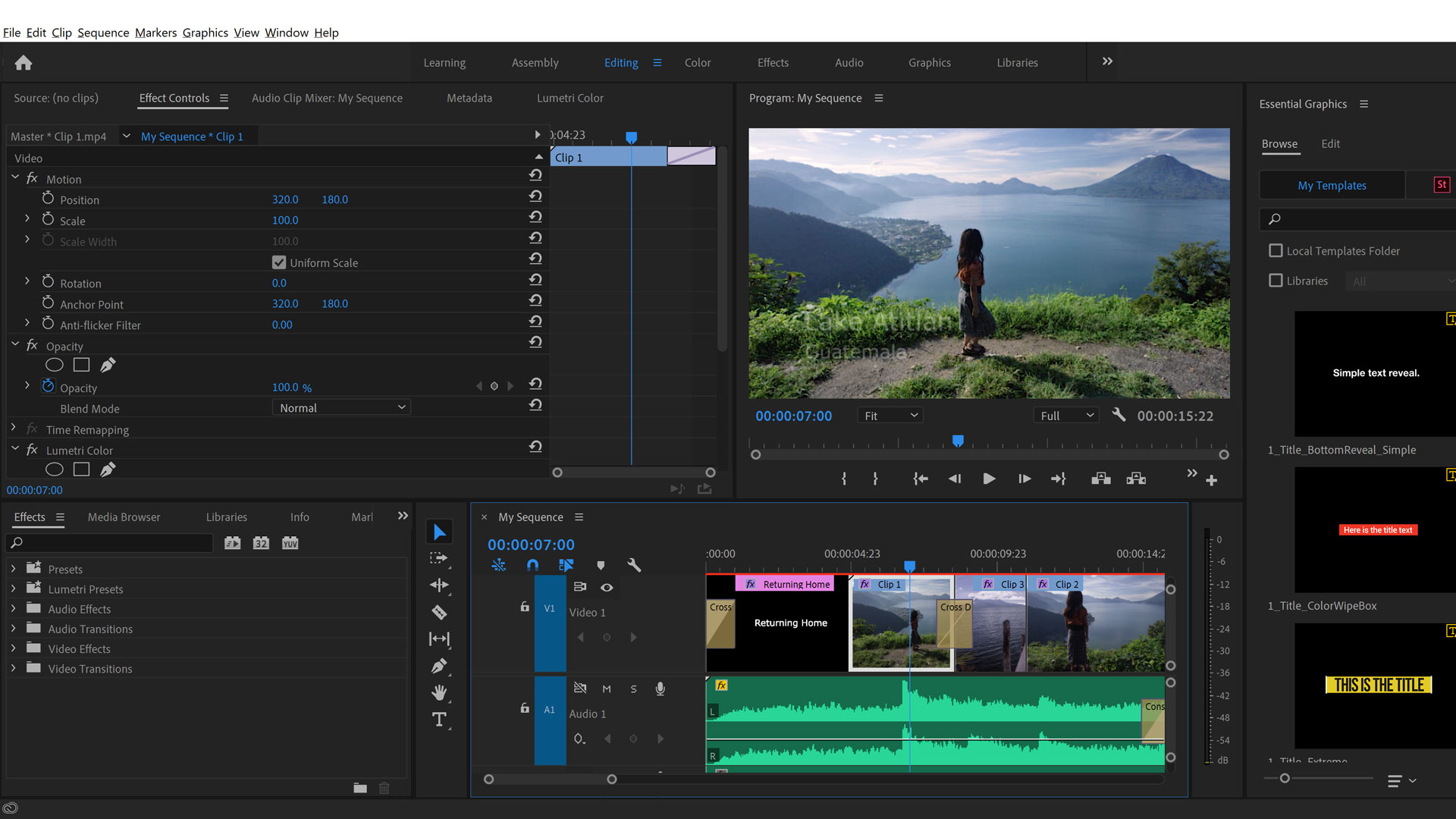
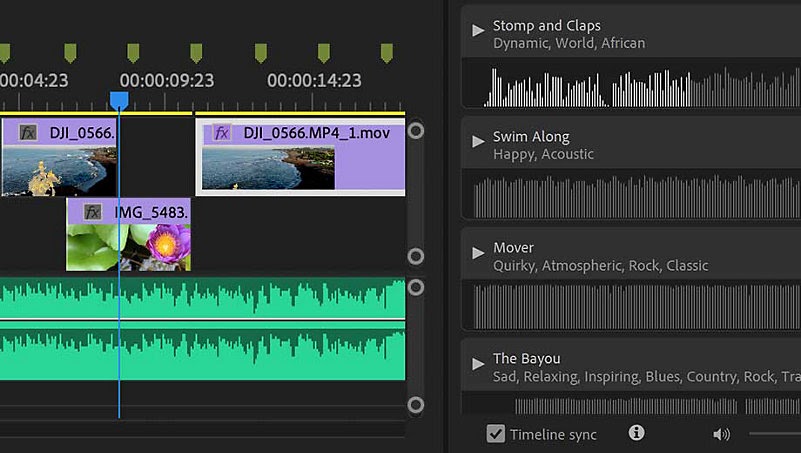
Adobe Premiere Pro is a powerhouse in the video editing world, and its AI-driven features solidify its position at the top. The software's Adobe Sensei technology offers tools such as auto-reframing, which intelligently tracks the action in a video to keep it centered, and scene edit detection, which identifies and marks cuts in pre-edited videos.
Adobe has announced plans to soon add AI video generation in Premiere Pro, which is likely to keep it at the forefront as the industry-standard tool. Powered by a new video model that will join Adobe's Firefly Ai suite, Generative Extend will allow the use of AI to add frames to clips while object Addition & Removal will make it easier to remove unwanted items, change an actor’s wardrobe or quickly add set dressings like a painting on a wall or flowers on a desk. There will also be full-blown text to Video, allowing the generation of entirely new footage directly within Premiere Pro to create storyboards to B-roll for augmenting live action footage.
Aside from the upcoming AI features, Premiere Pro's well-organised interface and seamless integration with other Adobe Creative Cloud apps make it ideal for professionals seeking robust and flexible editing capabilities. However, its steep learning curve and the subscription-based pricing may be a drawback for some users.
See our full Premiere Pro review for more details.
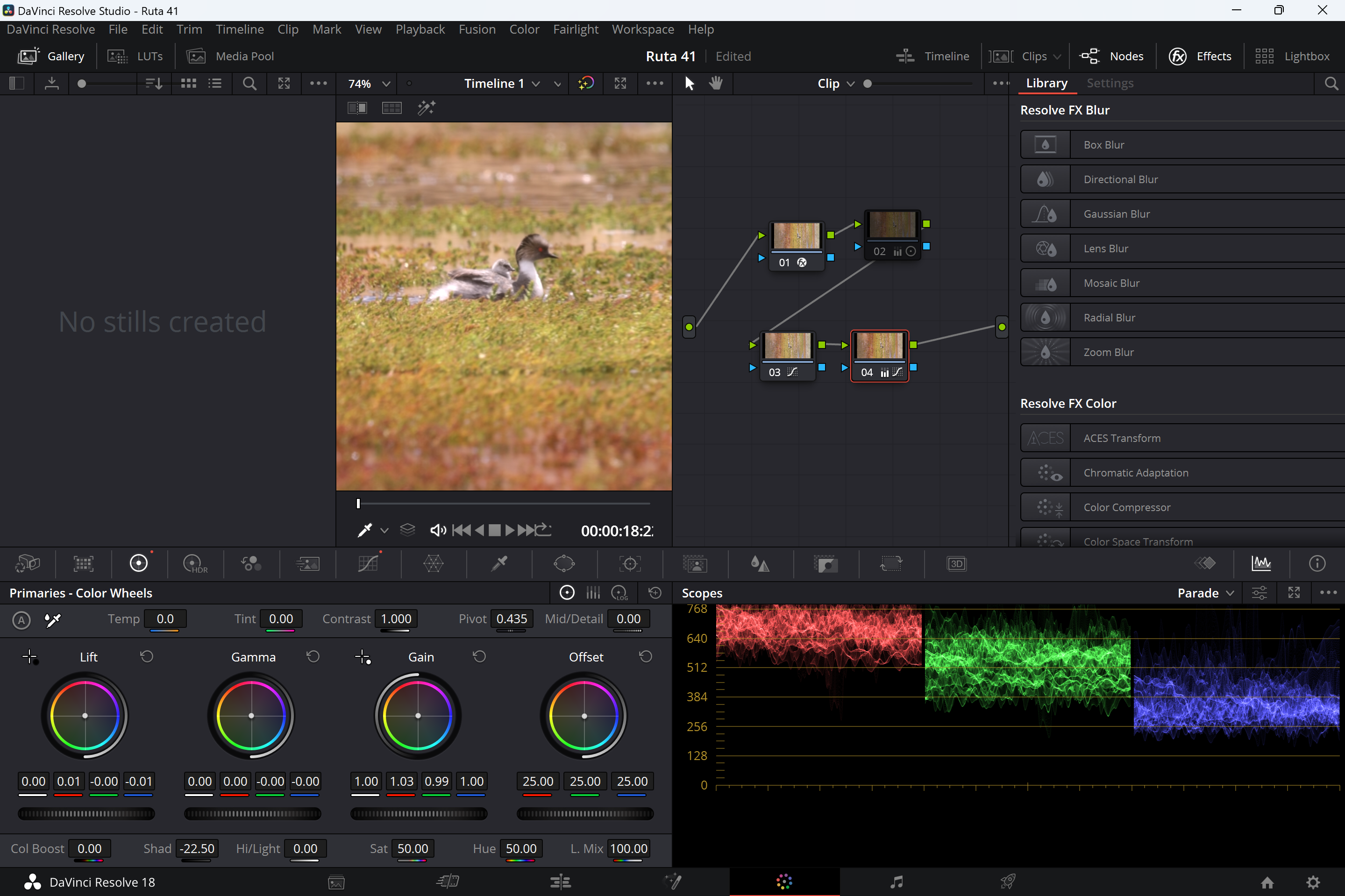
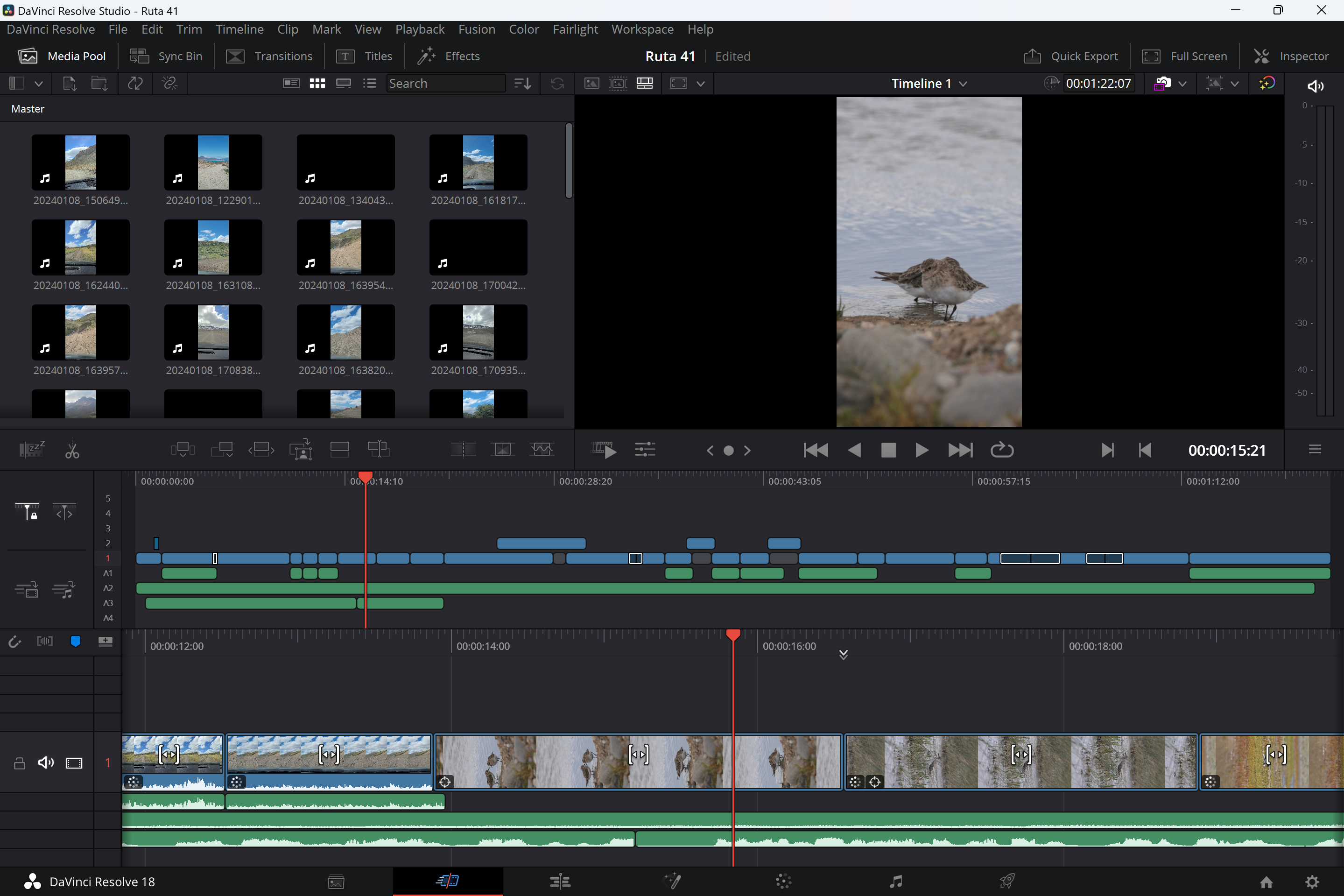
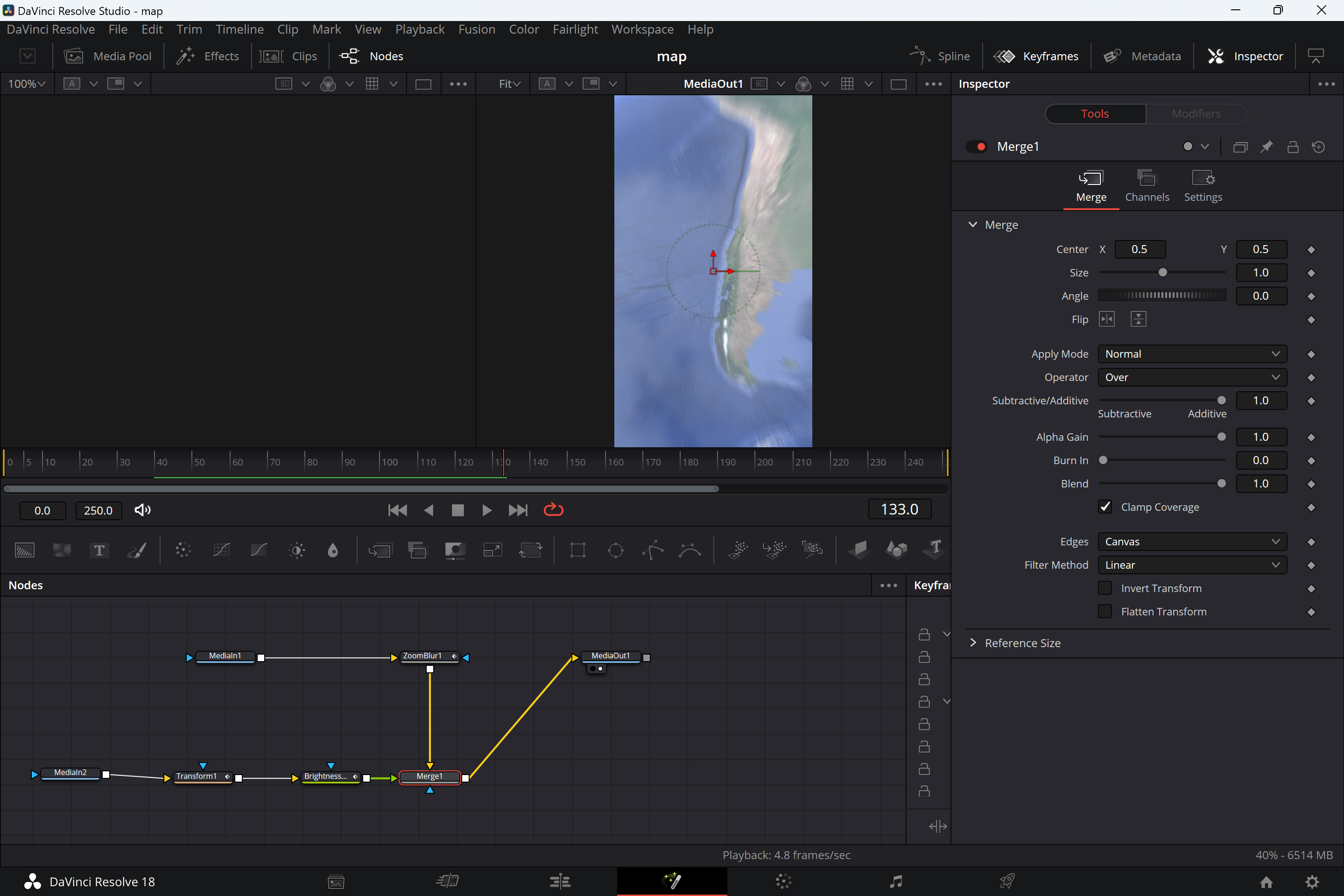
DaVinci Resolve by Blackmagic Design is renowned for its professional-grade color correction and grading tools, and the pro Studio version is now augmented with a range of AI capabilities. The DaVinci Neural Engine offers features like facial recognition, speed warp for smooth slow-motion, and auto color and color matching, which streamline the editing process.
The free version of Davinci is remarkably robust, though the paid Studio version unlocks the more powerful AI tools. The interface may appear daunting to beginners, but its powerful features make it a favorite among experienced editors. There's also the option to use proprietary physical peripherals to deck out a dedicated editing suite.
See our full Davinci Resolve 19 review for more details.
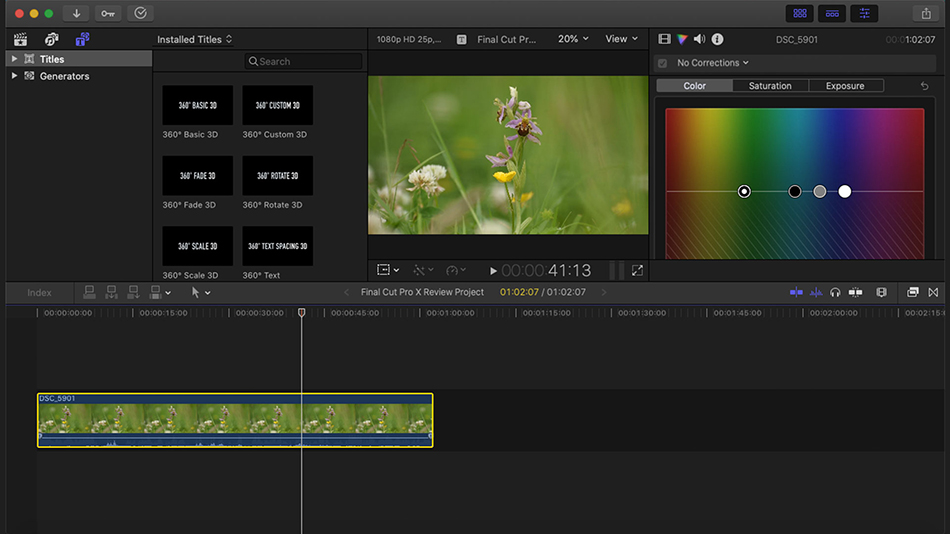
The latest release of Final Cut Pro, Apple's flagship video editing software, adds a range of new AI features. For example, Smart Conform can automatically adjusts clips for various aspect ratios, great for content professionals looking to create material tailored to different platforms. The Magnetic Timeline and advanced multicam editing are further enhanced by AI, making complex editing tasks more manageable and AI object removal, shot stability analysis and audio clean up speed up some of the more mundane aspects of getting your project ready for final export.
Of course, as it’s an Apple product, its optimised for Mac systems, and generally it’s easy to ensure a smooth and fast editing processes. However, its exclusivity to macOS can be a limitation for those on other operating systems.
See our full Final Cut 10.5 review.
When we reviewed Videoleap, we used the software to create a series of Instagram reels. By using AI, it allows you to upload clips and describe the style you want to quickly generate a video. As well as providing a good degree of automated editing when it comes to social content, there’s also a powerful standard video editor. That means that, unlike with some comparable AI platforms, there’s a good degree of editing options available after the content has been generated, such as changing the pace, style or music.
There are AI filters on offer and tools such as AI background removal, and we liked the fact there are simple AI features like auto captions, which write captions from your voiceover automatically.
See our full Videoleap review.
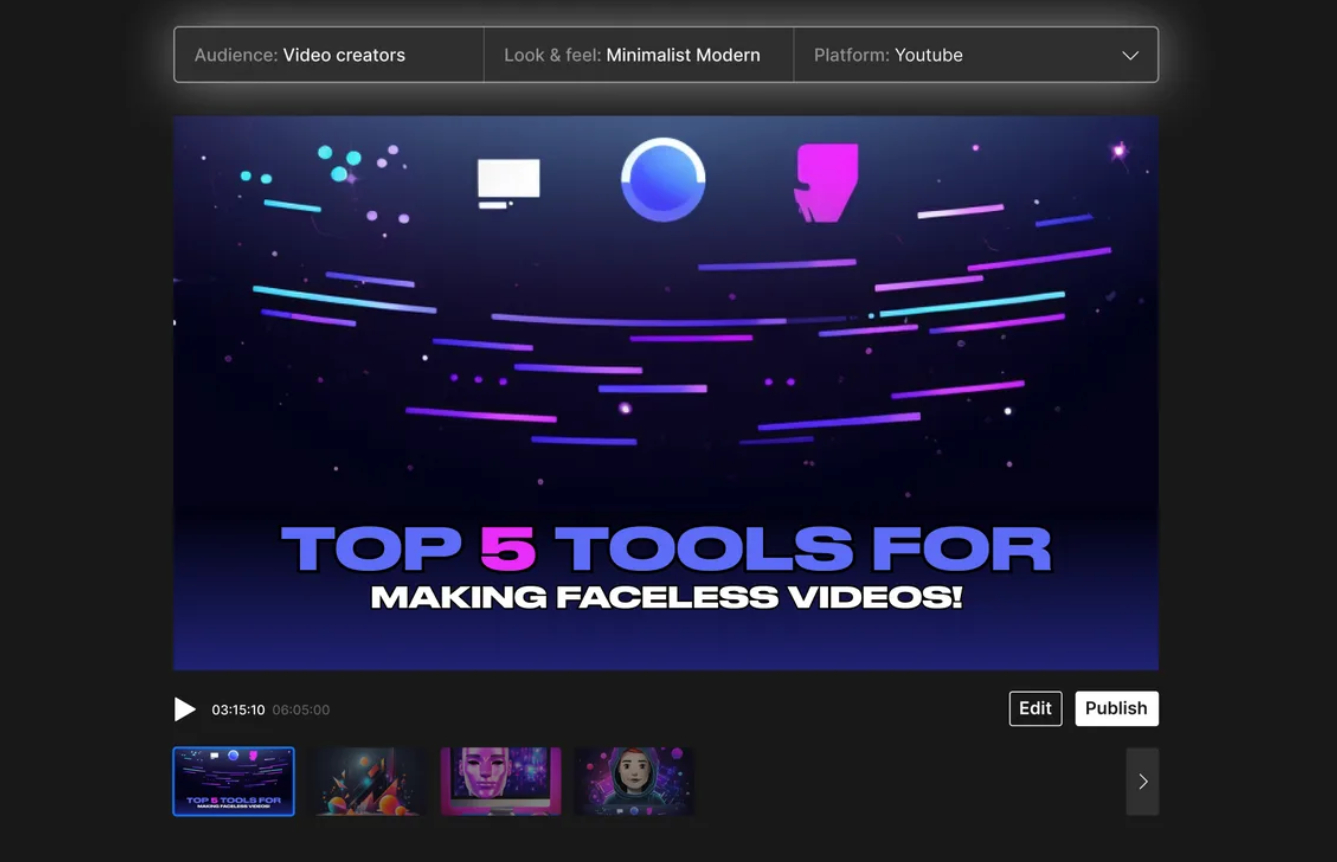
Invideo AI is a very different proposition since it's not really video editing software at all, at least not in the traditional sense. Rather it finds stock video footage for you. You use simple conversational text prompts to ask it to generate a video on the topic you want, and it generates a script, adds an AI-generated voice and slaps it over some stock video footage related to the topic.
It's worth stressing that this is not an AI video generator like Sora or Runway. It merely uses AI to identify existing stock video footage. The plus side of this is that you avoid those weird AI artifacts, but, unsurprisingly, the results are very hit and miss. Since it relies on rights-free stock footage from the web, much of it is quite generic, and sometimes the video chosen doesn't match the script very well.
The editing tools do allow you to search for alternative footage and to edit the script and make other tweaks. You can even clone your own voice by uploading a recording of yourself. Invideo does also have a more traditional video editing tool as well, as well as templates to use. The free plan offers allows you to generate up to 10 minutes a week of AI stock video but with watermarks.
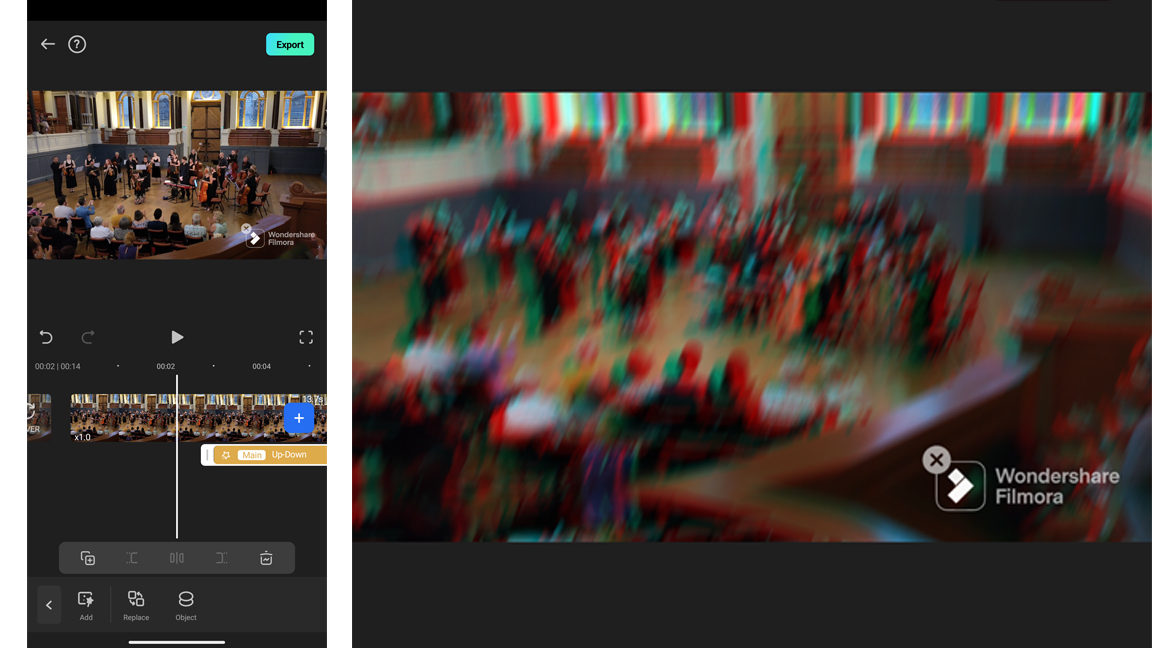
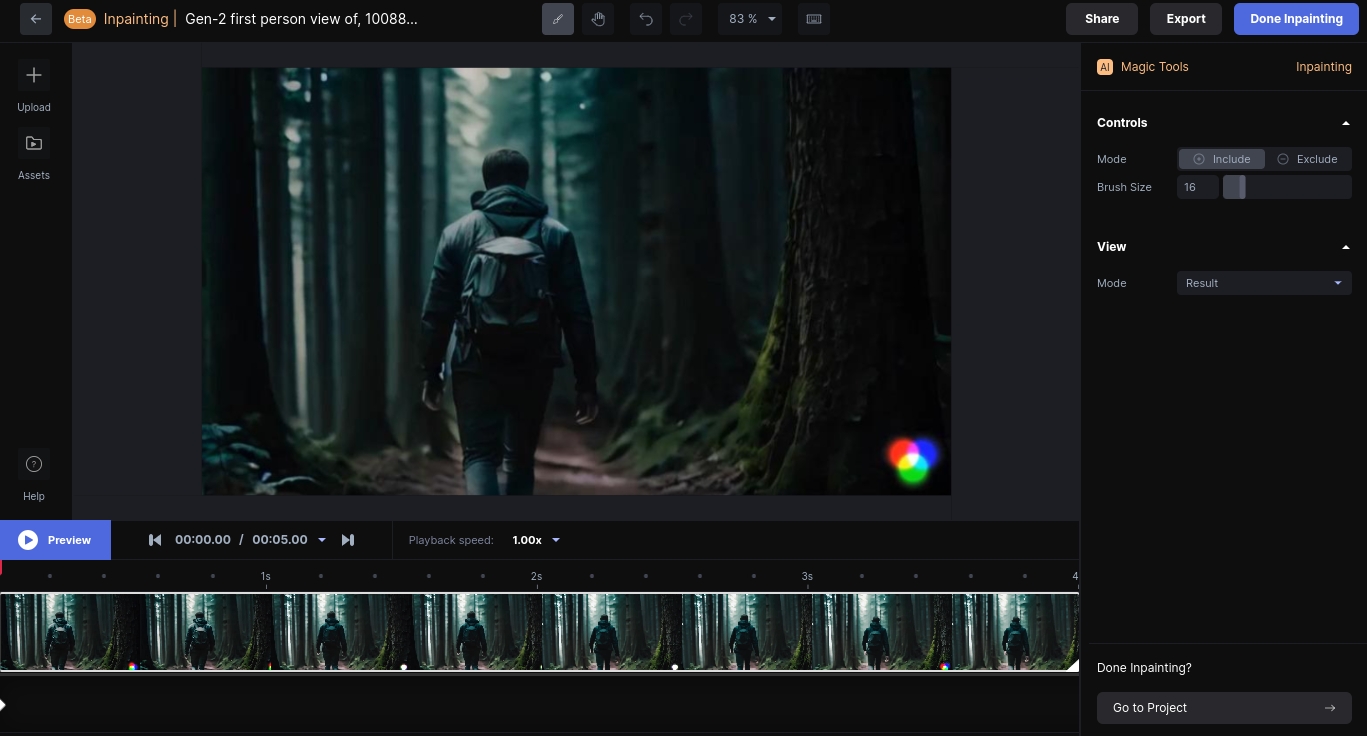
Runway is a fully-featured video editor that gives you access to a number of AI tools. In addition to editing existing video, Runway can also generate footage from scratch based on a text prompt. In my test, the overall quality was fairly impressive, and it fitted the prompt well.
The video editing features enable you to do things such as isolate a subject and remove the background, colour grading, adjusting the depth of field, making a slow motion version of your footage, and 'Inpainting', which means you can easily remove unwanted objects.
Many of these effects rely on successfully masking your subject and this feature works well; it’s easy to create a good mask by clicking just a few points. There’s also a Video to Video feature that enables you to create a stylised version of your footage, for example a claymation or pen and ink style. You even use a reference image to replace the face or whole body of your subject, and it will be animated to match their movements. It's great for things like background removal, cleaning up your videos, and adding some fun effects. You can also use it to generate custom footage based on a text prompt.
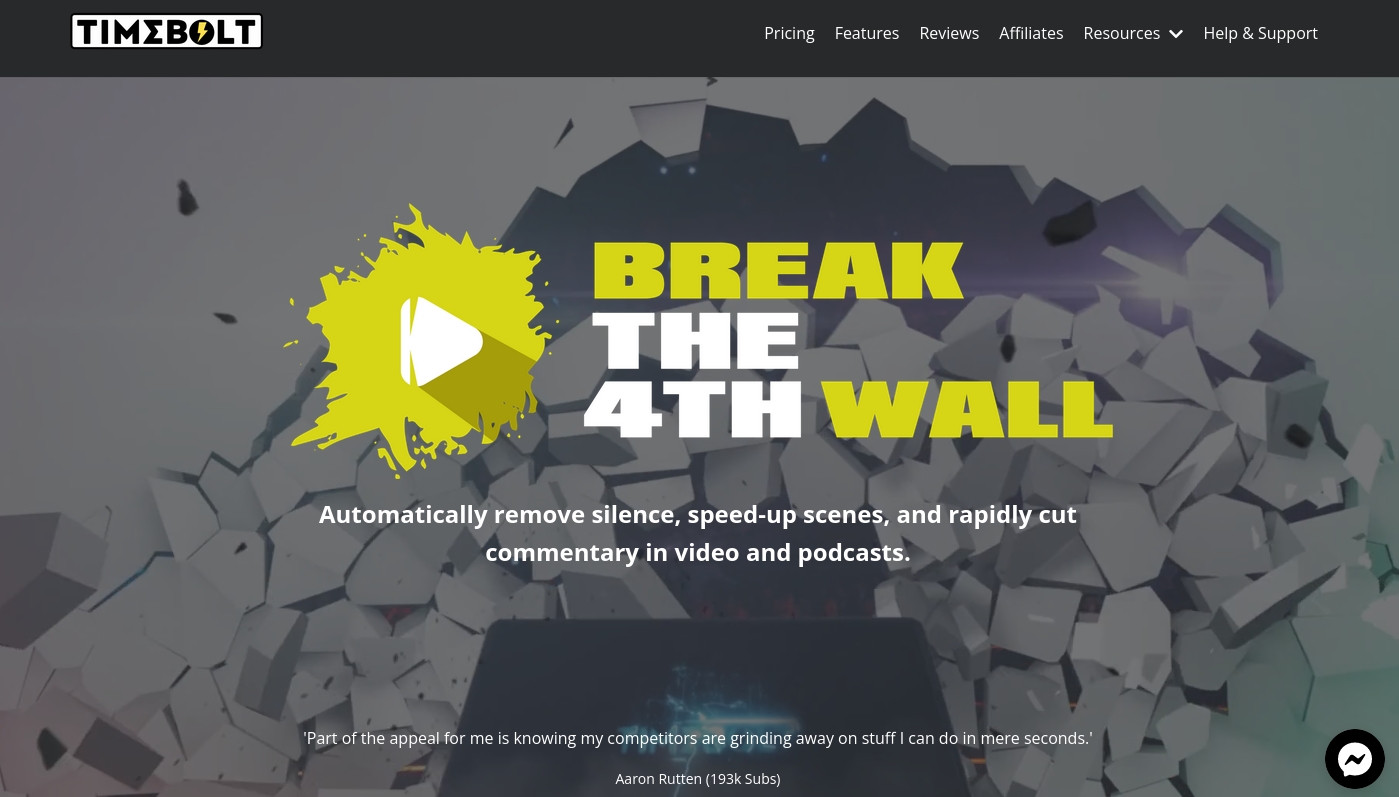
TimeBolt is an AI video editing tool that podcasters and YouTubers will love as it automatically removes pauses to make your output more listenable. TimeBolt can process an hour of footage in well under a minute, delivering a jump cut video with all the silences taken out.
That pausing removing jump cut feature alone makes this TimeBolt a massive, well, timesaver. But this AI video editing tool can do a lot more than just that one thing, for example slow speakers can be sped up to a more engaging pace and the Umcheck feature will remove filler words.
You can also use it to cut Zoom recordings and TimeBolt has a feature that helps you to speed things up by only previewing what you cut. This way, you can make sure that nothing important is removed, but save time by listening only to the unwanted material, which is shorter than the video you want to keep.
TimeBolt is great for automatically removing silences and filler words from your videos. It’s also great for correcting a slow speaker. Fundamentally TimeBolt enables you to improve your work, rather than creating for you.
TimeBolt can’t make a boring speaker interesting, but it can do everything possible to adjust their speech to a lively pace. Sorry folks, you're still going to need some core video and interviewing skills.
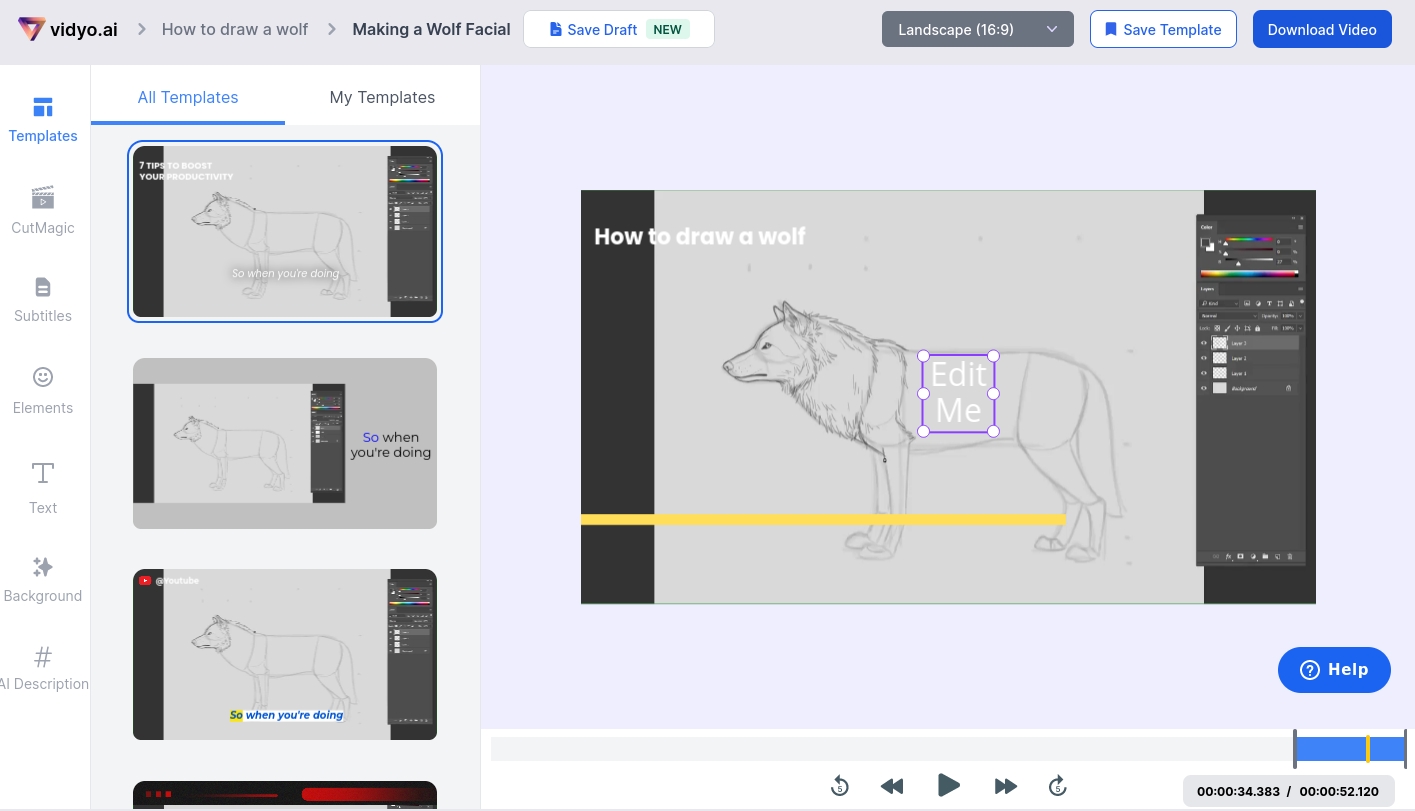
Vidyo.ai is the AI video editing tool to make your social media easier. Creating short extracts from your videos and placing them on social media is a great way to draw people in, but it’s time-consuming, which is where Vidyo.ai is here to help.
You simply upload a video or paste in a URL of your work that is already on YouTube, and Vidyo.ai will work out what it thinks are the most interesting bits and create some shorts for you to post and share. You can select different aspect ratios and formats for the output and it will create multiple videos, so you can post to all the platforms you need. Vidyo.ai automatically adds subtitles, which increases engagement as it allows them to be watched without sound.
On top of this, Vidyo.ai also has some powerful video editing capabilities, such as CutMagic Scene Detection that adds a flag every time there’s a cut. It’s really useful for editing with a multicam setup and Vidyo.ai takes a lot of stress out of creating engaging video.
Vidyoai is great for creating teaser videos for long format content; just tell it the formats you want and it will resize and add subtitles. The automatic cut detection is also really useful. It’s not always going to select what you think are the best bits, so you may have to employ some workarounds to get the results you want. It can speed things up but you're still the taste-maker, which is important.
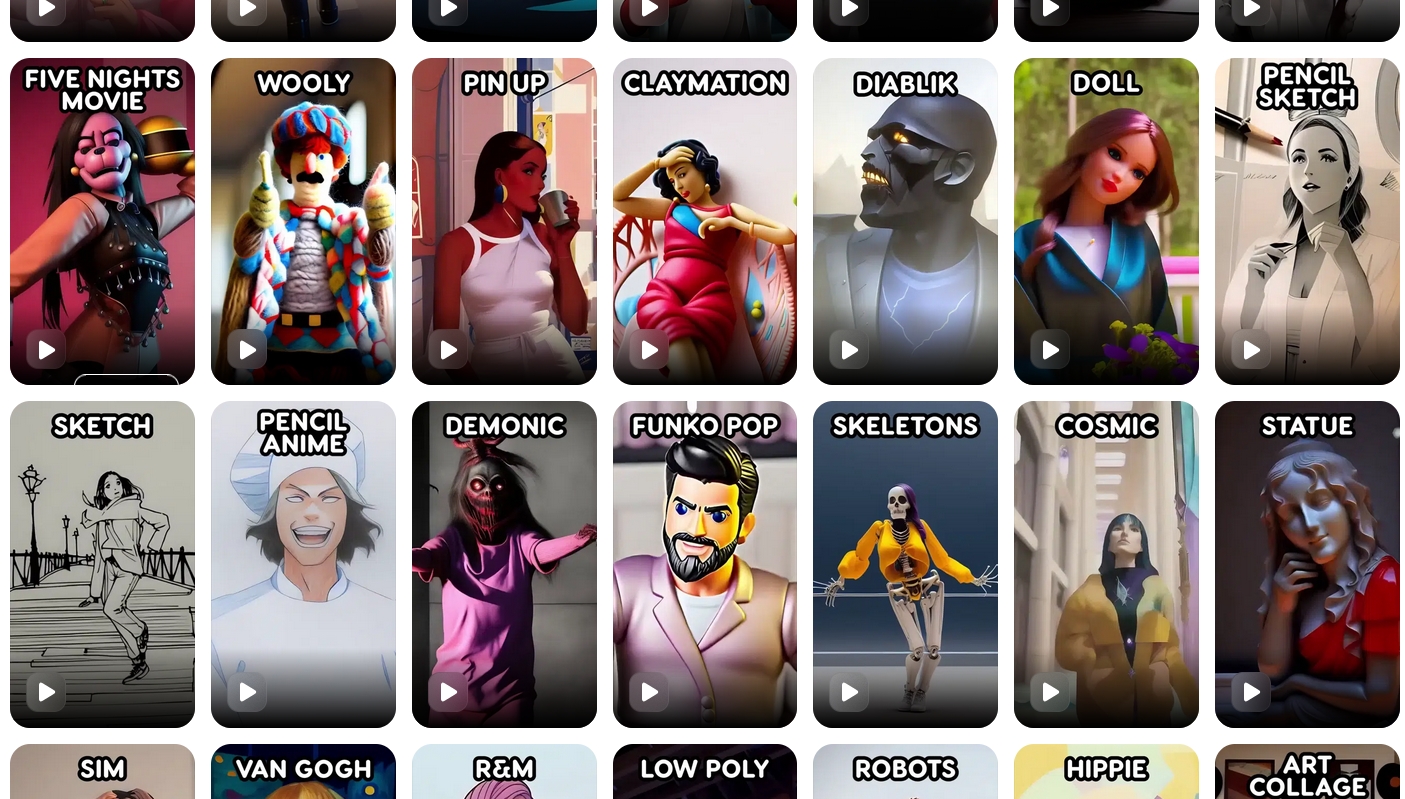
Reface uses AI to apply face swaps and stylistic effects to your images and videos. Unlike the other tools on this list it’s more for fun than serious creativity, but you could use it to generate avatars for your social channels. There's been an explosion in this kind of novelty AI video editor, and there are now dozens available in the app stores for Android and iPhone, but Reface does the job.
The face swap feature enables you to put people’s faces onto a character in a video, and can be used to amusing effect. Probably more useful for creative purposes is the Restyle feature that transforms your videos to make them look like stylised animations. There are many different styles, including a stop-motion one that makes your characters look like wool puppets and a low-poly style that looks like a computer game.
If you want to play around with these video effects, Reface has a huge library of styles to experiment with. Restyle is more casual and fun than some of the AI tools for video editing on my list, but it's used on iPhone and Android devices so signals a future where we can edit video on the go with polished, professional results.
Reface is a face swap and restyling tool for creating fun videos. There is a large library of high quality video styles to experiment with. Reface is one of those AI tools you’ll want to use judiciously, as not everyone is going to be amused to see their face appear in an unexpected context. Just be aware that like with many of these apps, some users complain that the pricing policy is opaque. I'd also be a little bit wary about the apps data policy. Be aware that it collects certain data and offers no way to delete it.
FAQs
What can an AI video editor do?
The most popular AI video editing tools are currently designed to enhance your work by automating many tasks, such as creating subtitles from audio, reducing noise, extending audio and generating text from video or video from text. AI tools for video editing are particularly useful for things like masking and tracking an object across multiple frames or removing a background in a few clicks.
Several programs have text-based video editing, which generates a script from your video and then allows you to edit the video by editing the text. Descript and Runway have this kind of tool.
Which AI video editors include text-to-video generation?
Adobe plans to add text-to-video generation in Premiere Pro. Until then, there are other AI video generators that are becoming popular. We've mentioned Runway Gen 2 above. Another publicly available alternative is Pika Labs.







